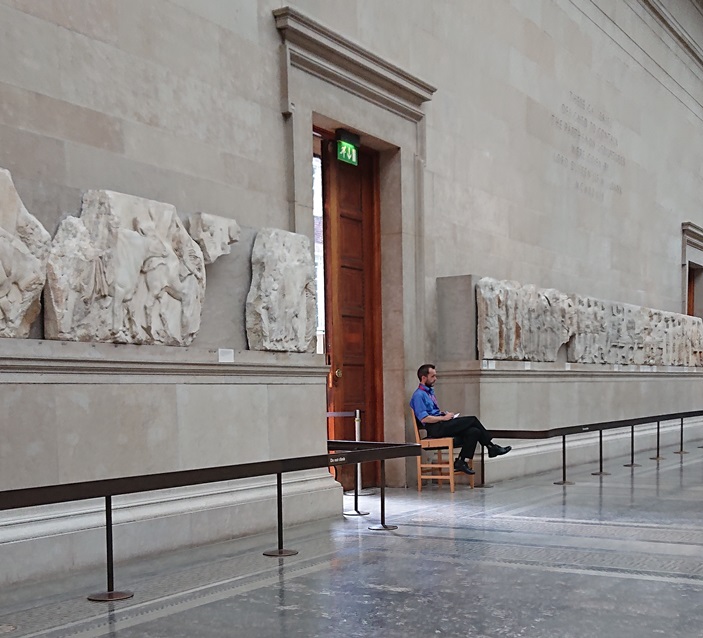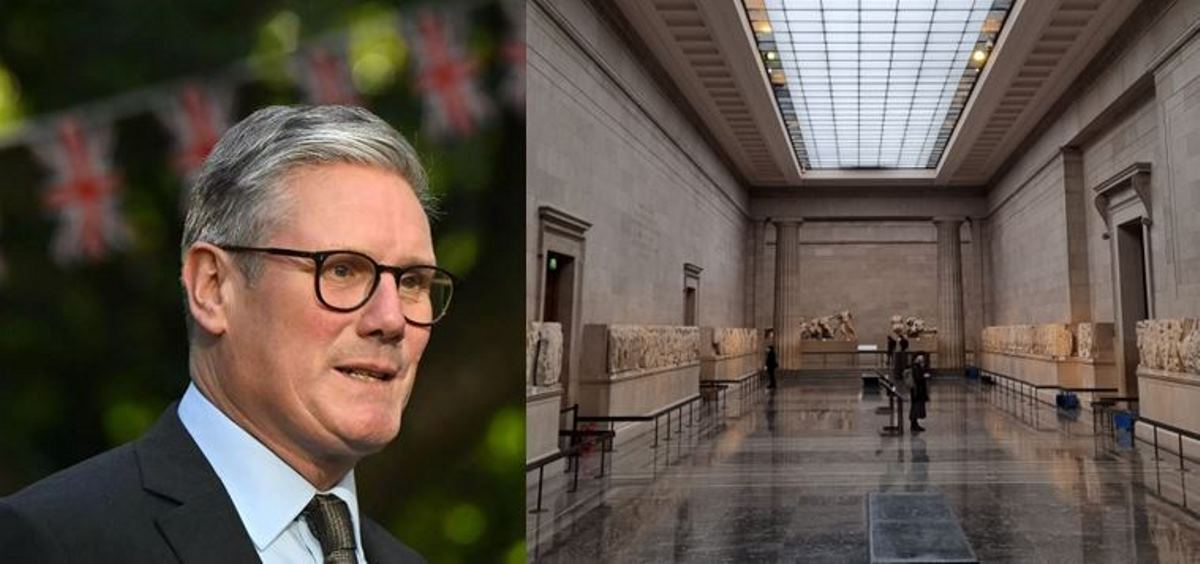This event was a panel discussion about the cultural repatriation of national treasures, inspired by the current status of the Parthenon Marbles.The event was held at the LSE by the Hellenic Observatory.
The debate over the reunification of the Elgin/Parthenon Marbles remains newsworthy. With attention post the Black Lives Matter protests signalling initiatives taken to return national treasures to their countries of origin, the campaign continues. For the Marbles, the British Museum has signalled a willingness to consider 'a deal', and the Greek Prime Minister highlighted Greece's willingness to discuss this further. He was due to visit the UK next month and have talks with UK's PM, although he did try to do this when Mr Johnson was PM too, gaining the support of UK audiences with his appearance on ITV's Good Morning Britain,16 November, 2021.
The panel that spoke on 18 October, considered the implications of reuniting the Marbles back to Athens and the issues that would arise should such a maganimous act take place any time soon.
Listen to Professor Paul Cartledge, BCRPM and the IARPS's Vice-Chair, alongside Ed Vaizey Chair of a new campaign the 'Parthenon Project', and Dr Tatiana Flessas, Associate Professor in Cultural Heritage and Property Law at the LSE. You can also revisit the talk that Dr Flessas gave on 09 October 2019 at the seminar held at the City of London University alongside BCRPM's Oliver Taplin, Jonathan Jones from the Guardian and Dr Florian Schmidt-Gabain, Attorney, Zurich, Lecturer in Art Law, Universities of Basel and Zurich.
Whichever side of the fence you may be sitting by, there is no doubt that the compelling moral and ethical reasons for reunificaton are as strong today as they were in June 2009, when the Acropolis Museum was opened. Considering also that the first request was made when Greece became indepependent, a request by the morden state of Greece to the UK, nearly two centuries ago.
Greece's requests have never waned garnering greater impetus through UNESCO's ICPRCP also. Yet the BM have remained firm in not wanting to reunite the marbles, that is up until this summer, when the new Chair of the British Museum Trustees, George Osborne suggested to Andrew Marr on LBC that a 'deal' could be made. This deal rests on Greece accepting to share half of the surviving, fragmented sculptures, and would be formalised as a loan agreement that would enable parts of the sculptures to travel back and forth with fragmented pieces currently held in the Acropolis Museum doing the same. With over 100,000 Greek artefacts in the BM, surely there are other exemplars to display in Room 18 which might allow Greece's justifiable request to be met with magnanimity, understanding and empathy? And let's also not forget that since Greek Minister of Culture Evangelos Venizelos in 2000 visited the BM, Greece pledged that should the Parthenon sculptures be returned, the Greek Government would make sure that the Duveen Galleries would always host Greek antiquities on loan for exhibitions. Greece would be willing to send rare and even newly discovered antiquities, which have never been seen outside Greece. This Greek offer has been repeated, and most recently by PM Mitsotakis when he was last in London.



Comments powered by CComment